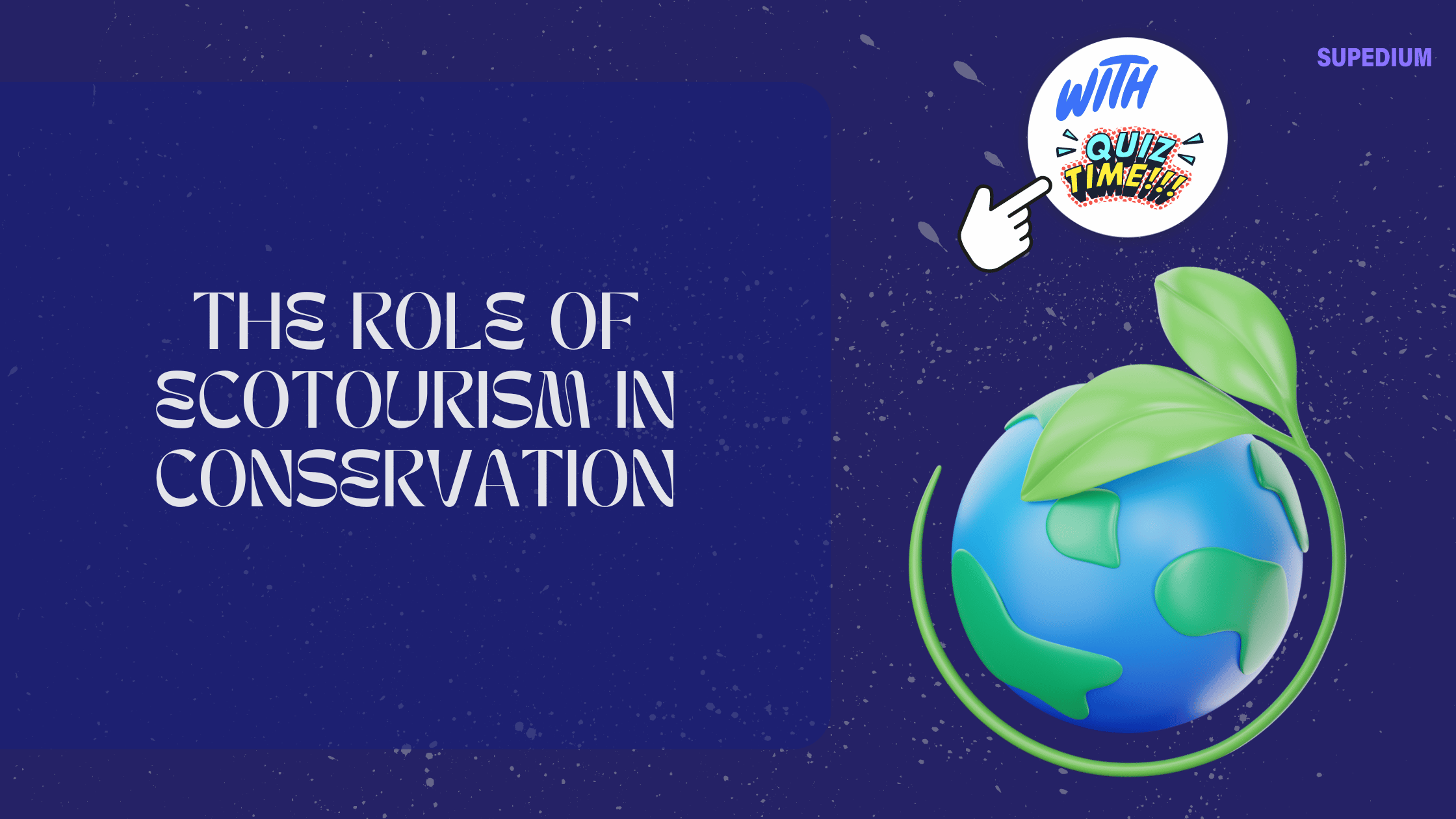Table of Contents
![]()
Introduction
Ecotourism is defined as responsible travel to natural areas that conserves the environment, respects local cultures, and promotes sustainability. It is a sector of the tourism industry that aims to minimize the negative impact of travel on natural ecosystems and local communities while fostering an appreciation for the natural world. The increasing global awareness of environmental issues and the growing demand for responsible travel options have elevated the importance of ecotourism in recent years.
Historical Context
The concept of ecotourism has evolved significantly over the decades. Initially, conservation efforts and travel were often disconnected, with tourism sometimes contributing to environmental degradation. It wasn’t until the 1980s that ecotourism emerged as a distinct concept, focusing on both environmental preservation and responsible travel. Influential figures and organizations, such as The International Ecotourism Society (TIES), played crucial roles in formalizing and promoting the principles of ecotourism.
Ecotourism and Conservation
Direct Benefits to Conservation
One of the primary advantages of ecotourism is its direct contribution to conservation efforts. Ecotourism often involves the generation of revenue through tourist fees, which can be channeled into funding protected areas and wildlife reserves. For example, entrance fees and donations from tourists help support the maintenance of national parks and the management of conservation projects. Additionally, the presence of tourists can create economic incentives for local communities to engage in and support conservation activities.
Indirect Benefits
Beyond the direct financial contributions, ecotourism also has indirect benefits for conservation. It raises public awareness about endangered species and threatened habitats, fostering a sense of global responsibility and advocacy for environmental issues. Ecotourism promotes sustainable practices and environmental education, both for tourists and local communities. By highlighting the value of preserving natural landscapes, ecotourism encourages a broader commitment to conservation.
Case Studies
Successful Ecotourism Projects
Several ecotourism projects have demonstrated significant success in supporting conservation efforts:
- The Galápagos Islands: This archipelago is renowned for its unique biodiversity and is a prime example of successful ecotourism. The Galápagos National Park, funded largely by tourism revenue, has implemented rigorous conservation measures to protect its endemic species. The revenue from entrance fees helps fund research and conservation programs, ensuring the protection of this delicate ecosystem.
- Costa Rica’s National Parks: Costa Rica has become a model for integrating ecotourism with national park management. The country’s extensive network of protected areas benefits from tourism revenue, which supports conservation initiatives and park infrastructure. The focus on ecotourism has helped preserve Costa Rica’s rich biodiversity and provided economic opportunities for local communities.
Challenges and Criticisms
Despite its benefits, ecotourism is not without challenges and criticisms. Over-tourism, where the number of visitors exceeds the capacity of the environment to cope, can lead to environmental degradation. Additionally, the influx of tourists can have socio-cultural impacts on local communities, potentially leading to the commercialization of local traditions and displacement of indigenous people.
Principles of Effective Ecotourism
To maximize the benefits of ecotourism and minimize its drawbacks, certain principles should guide its implementation:
Sustainable Practices
Effective ecotourism prioritizes sustainable practices, aiming to minimize the environmental footprint of tourism activities. This includes reducing waste, conserving water, and using renewable energy sources. Sustainable ecotourism also involves supporting local economies by sourcing products and services from local businesses.
Community Involvement
Empowering local communities is crucial for the success of ecotourism. Involving local residents in tourism planning and decision-making ensures that they benefit from tourism revenue and have a stake in conservation efforts. Equitable distribution of benefits helps to create a positive relationship between tourists and local communities.
Education and Interpretation
Providing meaningful educational experiences is a core component of ecotourism. Tourists should be informed about the environmental and cultural significance of the areas they visit. Interpretative programs and guided tours can enhance understanding and promote responsible behavior among visitors.
The Future of Ecotourism
Trends and Innovations
The future of ecotourism is likely to be shaped by various trends and innovations. Advances in technology, such as virtual reality, offer new ways to experience and appreciate natural environments without physical travel. Additionally, niche markets within ecotourism, such as wildlife photography and adventure travel, are expanding, providing more tailored and impactful experiences.
Challenges and Opportunities
Balancing tourism growth with conservation goals remains a significant challenge. As the demand for ecotourism experiences increases, it is essential to address potential negative impacts and ensure that tourism development aligns with conservation objectives. Global climate change also poses a threat to many ecotourism destinations, requiring adaptive management strategies.
Conclusion
Ecotourism plays a vital role in conservation by providing financial support for protected areas, raising awareness about environmental issues, and promoting sustainable practices. While it faces challenges, its principles and practices can contribute significantly to the preservation of natural landscapes and the well-being of local communities. By encouraging responsible travel and supporting conservation efforts, ecotourism offers a path toward a more sustainable and harmonious relationship with the environment.






Be the first to comment